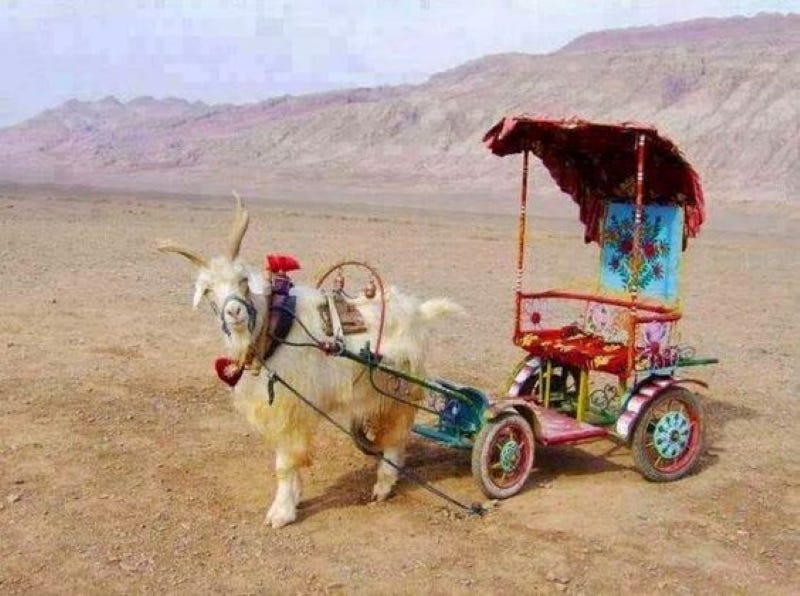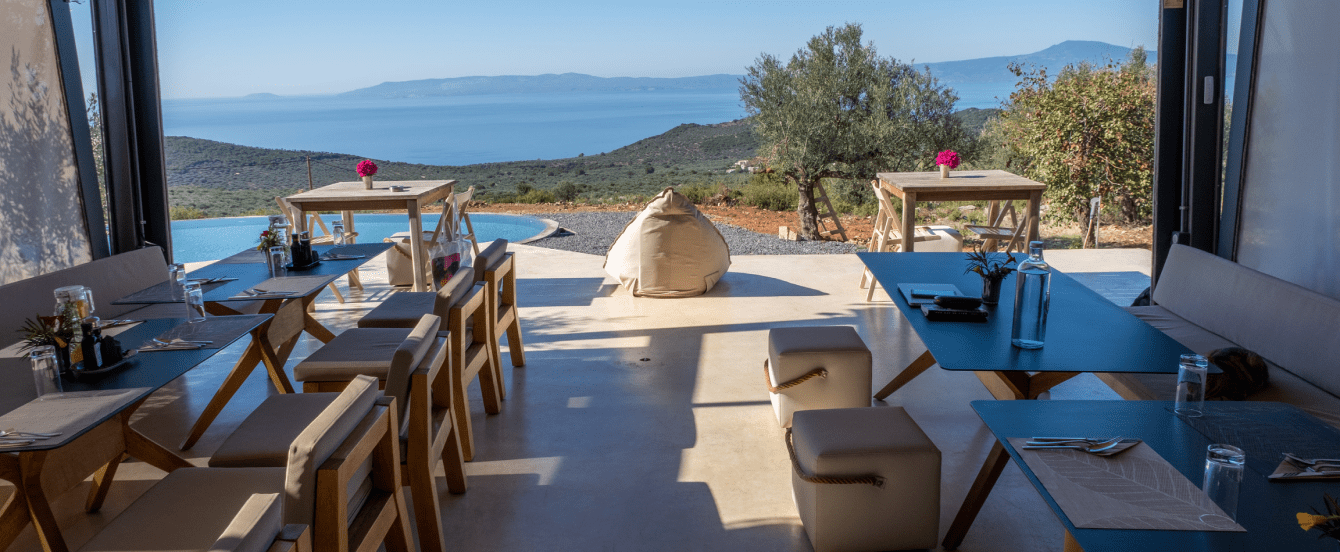
In the past ten days most of us, watching the apocalyptic wildfires around Los Angeles, must have asked ourselves at same point: what if that happened to me? Our hearts go out, of course, to those who’ve had to flee their homes. Who’ve had to pack their lives into a car at short notice. Not to mention all the very many sentient beings who didn’t escape.
So, how would we feel being told that our homes were in the direct path of a massive inferno? Getting a message telling us to leave now? Even if we did escape with our loved ones and perhaps some important documents and a few belongings – what would it be like seeing images of our much-loved home and entire suburb reduced to cinders?
Rather than turning away from what’s happening in Southern California, relieved that we don’t have to deal with the problem, while the emotions invoked by the trauma remain vivid, how about using them to make real the parable of the burning mansion told by the Buddha?
“Shariputra, suppose in a village or city in a certain kingdom there was a great elder. He had many fields, houses, and servants. His house was large and spacious but had only one gateway. Many people lived in the house, one hundred, two hundred, or even five hundred in all. Its halls and rooms were old and decaying, its walls crumbling, its pillars rotting at the base, its beams and rafters falling down and dangerous.
“All over the house, at the same moment, fire suddenly broke out, engulfing the house in flames. The children of the elder, say ten, twenty, or even thirty, were in this house. The elder, seeing this great fire spring up on every side, was very alarmed and thought: ‘Though I can get out safely through the flaming gateway, my children are in the burning house enjoying themselves engrossed in play, without awareness, knowledge, alarm, or fear. Fire is closing in on them. Pain and suffering threaten, but they do not care or become frightened and have no thought of trying to escape.’”
In his story, Buddha uses the burning mansion as a metaphor for samsara. Dad is an enlightened being and we’re the kids playing games even though the house is on fire and it’s closing in on us.
Buddha describes Dad’s efforts to get the kids out. Like any well-to-do noble of his time, he has lots of children and I’m guessing a number of wives about whom the tale is silent. There is only one exit from the house. And they’re running out of time.
“Although the father was sympathetic and tried to persuade them with kind words, the children, absorbed in their play, were unwilling to believe him and were neither alarmed nor frightened. They didn’t even think about trying to escape. What’s more, they did not understand what he meant by the fire, or the house, or losing their lives. They only kept running around playing, barely glancing at their father.”
There is a dream-like quality to what is happening, a sense of surreal but believable horror: Dad is trying to get the kids out of harm’s way, but they are oblivious, too caught up in childish distractions.
This is the state of all beings in samsara. And samsara is not so much a place as ‘mind afflicted by karma and delusion.’ Two people can be in the same room, but their experience of reality may be completely different, because it depends less on what appears to be out there – the contributing factors - than on the people’s minds – the main cause.
In the Lotus Sutra, Buddha is talking about people who unquestioning accept that reality is how we perceive it. Which is most of us, most of the time. We believe that our greatest fulfilment is to be found by re-arranging the externals of our lives, following the usual samsaric recipe of homes, families, careers, vacations and entertainment. We are sincerely trying to have good lives, doing the right thing by our families or at work, but we are just like the kids in the burning house. ‘Neither alarmed nor frightened. They didn’t even think about trying to escape.’
There is nothing at all wrong with seeking happy relationships, families, careers etc. If we are wise, we can use these as opportunities for inner practices like generosity, ethical restraint, patience and so on. But when we see them as ends in themselves, when we fill our lives and minds with worldly pursuits alone, we are like children playing games. The house is burning down around us and we don’t even know it! We are naive, innocent, and have no idea how bad things are. That’s the reason we get so caught up in time-wasting distractions.
“Absorbed in these things, living beings rejoice and amuse themselves, without knowing or seeing or being alarmed or frightened. And never being dissatisfied, they never try to liberate themselves. In the burning house of this threefold world they run about here and there, and, though they encounter great suffering, they are not disturbed by it.”
This description of a materialist life is as relevant now as it was thousands of years ago. Whatever horror or fear we feel, when reminded of the completely unsatisfactory nature of samsara, like the Los Angeles fires, we have an amazing capacity to move on, to put aside what has happened, to continue living normal lives even though we are constantly being reminded what a dangerous state we’re living in.
Another metaphor often used by lamas describing this same situation is like sheep contentedly grazing in a paddock outside an abattoir even as, one by one, they are taken inside to be slaughtered, sometimes lured by sweet grass or carrots. We are just so trusting and innocent, even though the evidence of what’s really happening is plain to see.
Buddha’s story takes an interesting turn. As the flames race through the blazing mansion, what does Dad do next? Parents among my readers may already have guessed:
“Knowing what his children always liked, and all the various rare and attractive playthings and curiosities that would please them, the father said to them: ‘The things you like to play with are rare and hard to find. If you do not get them when you can, you will be sorry later. A variety of goat carriages, deer carriages, and ox carriages are now outside the gate for you to play with. You must get out of this burning house quickly, and I will give you whatever ones you want.’
“When they heard about the rare and attractive playthings described by their father, which were just what they wanted, all of the children, eagerly pushing and racing with each other, came scrambling out of the burning house.”
Yep, good old-fashioned bribery. As effective back then as it is now! This sutra is often quoted as being about ‘skilful means,’ suggesting the importance of adapting a message to its audience in guiding them to enlightenment. The Dad in the story, unable to get the kids’ attention using the threat of fire – about which they were innocent – promised greater excitement elsewhere. Which worked a treat.
The same skillful means is just as necessary today. We live in a largely materialist world, the majority of people in our communities having the underlying, if largely unexplored belief that matter is all that exists, and that consciousness arises from brain activity.
We also live in communities beset with material anxieties and obsessions, physical ailments, sky-rocketing mental health conditions, along with our own personal cocktails of traumas and fears. Telling people who already feel beset by such problems that they need to up their lift their sight and take in the big picture or that they risk coming back as a dung-beetle many times over is – even if true – an unlikely motivator! The equivalent of telling excited, playing kids to get out of a burning house.
So, what goat and deer carriage equivalents might we use? What are ‘the various rare and attractive playthings and curiosities’ that may be relevant today?
A goat cart in India
Meditation is a big one. Whatever our beliefs, or lack of them, there is abundant evidence that meditation is a powerful way to manage stress, combat anxiety and deal with a plethora of mental and physical conditions.
If meditation is a step too far, simply allowing nature to stream through the senses in a managed way, takes us to a different place.
Quantum science offers another ‘goat-carriage’ in revealing the materialist world view to be quaintly Newtonian. If particles may also be waves, and matter also energy, that upsets the complacency of the ‘brain is consciousness’ crew: the view of consciousness as a form of energy is, in fact, classic Buddhism.
There are also growing numbers of studies revealing the importance of connectivity to others and the benefits of focusing our compassionate attention on other beings. An emphasis on compassion appeals very strongly to many people who may find other aspects of the Dharma a bit too cerebral.
Once people begin to explore meditation and mindfulness, compassion and the nature of reality, we help nudge them out of samsara. Draw them away from their self-absorbed game playing while the house burns down.
“Then the elder, seeing that his children had safely escaped and were all sitting in the open square and no longer in danger, was very relieved and ecstatic with joy. Then each of the children said to their father: ‘Those playthings you promised us, the goat carriages, deer carriages, and ox carriages, please give them to us now!’
“Shariputra, then the elder gave each of his children equally a great carriage. They were tall and spacious, and decorated with many jewels. They had railings around them, with bells hanging on all four sides. Each was covered with a canopy, which was also splendidly decorated with various rare and precious jewels. Around each was a string of precious stones and garlands of flowers. Inside were beautiful mats and rose-coloured pillows. Pulling each of them was a handsome, very powerful white ox with a pure hide, capable of walking with a smooth gait and fast as the speed of the wind. Each also had many servants and followers to guard and take care of them.
“Why was this? Because this great elder’s wealth was so inexhaustible, his many storehouses so full of treasures, he thought: ‘There is no limit to my wealth. I should not give inferior carriages to my children. They are all my children and I cherish them equally. I have countless numbers of these large carriages with the seven precious materials. I should give one to each of the children without discrimination. I have so many large carriages I could give one to everyone in the land without running out. Surely I can give them to my own children.’
“Then the children rode on their great carriages, having received something they had never had before and never expected to have.”
We may be lured from the house on the promise of a goat or deer carriage, something that’s appealing even if, in the context of the parable, is of no great significance.
Buddha hinted at what we actually do find, once free from samsara, using the powerful symbolism and lyrical description of the ox-drawn carriage - a white ox symbolising purification, strength, abundance and enlightenment. In the world of his parable, however, these are mere concepts pointing to a more important non-conceptual reality: whatever we may imagine our future may be, as embodied humans with limited perceptions, he assures us that an enlightened future is beyond anything we have experienced or may even imagine.
To summarise:
The horrifying reality of the wildfires in Los Angeles is not something most of us will experience literally. But Buddha used exactly this example to refer to our samsaric state.
His metaphor shows the difficulty of persuading ordinary people - ‘children’ - who believe that reality is as we perceive it, to escape samsara, where devastation and suffering are inevitable.
After failing to persuade the children to stop playing games and leave the burning house, the ‘Dad’ in Buddha’s parable coaxes the kids out with promises of ‘rare and attractive playthings.’
This same approach of matching a message to its audience, called ‘skillful means,’ is equally applicable today. Hellfire and brimstone messaging just doesn’t cut it. Fortunately, there are other more compelling messages on which we may focus - and encourage others to focus - such as about meditation, compassion and the nature of reality. These have the effect of coaxing us away from a self-absorbed, samsaric mindset.
Ultimately, what awaits those who strive to leave the burning house - a mind afflicted by karma and delusion - is far beyond anything we may imagine. Something we have never had before or even imagined having.
Let’s recognise that we are all the inhabitants of a house that’s on fire. Just as we’ve seen in the news for the past weeks. Even if things seem okay right now, it won’t be long before they turn otherwise for us too. So, let’s get out! Let’s consciously cultivate the causes to escape samsara. In so doing, we create the causes for a future more extraordinary than anything we may imagine.
The verses quoted are kindly translated by Gene Reeves: The Lotus Sutra: A Contemporary Translation of a Buddhist Classic. Wisdom Publications. 2008. For more on this wonderful book or to buy it click here.
Please let me know, in the Comment section below, if you find this parable of the Buddha’s interesting. Like many spiritual teachers he was a great storyteller and he has many others to be explored!
If I may lure your attention with a metaphorical goat carriage of my own (!) we have only a few rooms left for our Spring renewal meditation and creativity retreat in Greece this April (13 - 19).
We’re offering: gentle yoga stretches, guided meditation sessions, immersive nature experiences, systematic relaxation, and exploration of how meditation empowers the creative process and, for those who are interested, a chance to talk writing and publishing with my agent and me.
If this sounds of interest, please click here.






Hello David,
I enjoyed the parable and would recommend sharing more. What i love most about your weekly newsletter is how you mix it up. One week is a parable, another is an exerpt from your new book, another is an article you've published, etc. You keep it fresh, all while guiding us on the path to enlightenment. I welcome whatever new format you'd like to introduce, because I know your intention is pure.
Namaste,
Stacey
Neither til he works well for west coast. Could they be recorded?